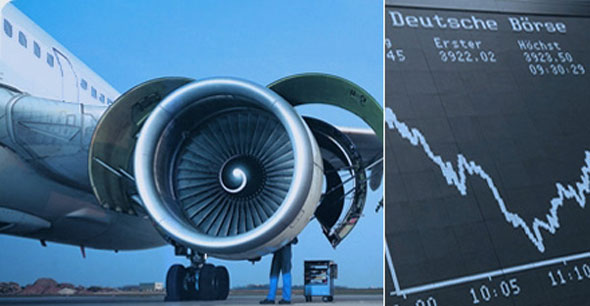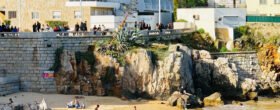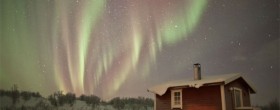Autonomies is a powerful investment concept originated by my friend David Fuller, the London-based analyst and commentator.
They are companies so fundamentally sound, with excellent managements, strong balance sheets, extensive international diversification, and domination of their respective niches, that they’re largely in control of their own destinies. In many ways, they’re comparable to small nation-states.
They have a double attraction for conservative investors, offering both reliable growth while equity markets surge ahead, with very limited downside risk if those markets turn bad, because of their defensive strengths.
Most Autonomies are large, and most of them are American… but not all.
Europe is becoming an increasingly interesting pool in which investors can fish for such companies.
Despite its many well-known problems, Europe has an abundance of high-level skills. Think of German/Swiss dominance in many specialized fields of engineering, Franco/Italian leadership in design of consumer products.
Its securities markets are broad and well-managed, with generally high standards of accounting and transparency.
And quite a few shares seem to be offering attractive valuations.
Everyone knows the downside – Europe’s economic growth is sluggish, and likely to remain so, because policies and structures are locked into the priorities of the past and into shielding ruling elites against the consequences of their past mismanagement, with not much more than lip-service given to reform and stimulation of growth.
However, quite a number of European companies don’t depend on European markets. They are strong in major foreign markets such as the US, and/or are focused on fast-growing ones such as those of Asia and Latin America. The Swiss luxury goods company Richemont does 93 per cent of its business outside Europe; the Belgian brewing giant Inbev does 88 per cent.
If the euro and other currencies largely linked to it (the Swiss franc, the Danish krone) continue to weaken against the dollar and the yuan, as seems probable, that will boost the profitability of companies whose earnings are largely sourced outside Europe.
Some, such as the Swiss food giant Nestle, are already Autonomies. Others have some of the same characteristics, such as global leadership within their niches.
Here are seven of particular interest…
Arcadis [ARCAD] is an Amsterdam-listed small-cap engineering company specializing in management of large construction projects, especially those relating to water, a traditionally Dutch field of expertise. The company built the new storm defence system for New Orleans after Hurricane Katrina. It has won the contract to manage construction of the Kingdom tower in Saudi Arabia, slated to be the world’s tallest at more than a kilometer high.
It gets 77 per cent of its revenue outside Europe, with a stable earnings growth that has been averaging 9 per cent a year. It currently yields above 2 per cent, nearly three times covered.
Assa Abloy [ASSA B], a mid-cap listed in Stockholm, is the world’s leading lock manufacturer, with well-known brands such as Yale, with an intensifying focus on electronic security systems. More than half its growth has been in emerging economies, capitalizing on exploding middle classes willing to pay to protect their material wealth.
The group derives 72 per cent of its earnings, which have been growing 9 per cent a year, outside Europe. The shares also currently yield above 2 per cent, 2.7 times covered.
MTU Aero Engines [MTXX.N], a small-cap listed in Germany, designs and builds engines and their components for military and commercial aircraft. It’s also in the lucrative business of servicing and maintaining such engines, as well as industrial gas turbines. It’s part of the consortium making the Airbus military transporter.
80 per cent of revenue comes from outside Europe. Earnings growth has been strong – averaging 14 per cent a year. The current dividend yield is about 1.6 per cent, more than three times covered.
Novo Nordisk [NOVO B] is without doubt an Autonomy. The Copenhagen-listed pharmaceuticals giant provides half the world’s supply of insulin for treatment of diabetes, a problem that’s becoming increasingly acute in emerging economies as diets and lifestyles change. It’s also a big player in treatments for blood disorders and growth hormones, and has an anti-obesity drug at the advanced trials stage.
The group gets 75 per cent of its revenue outside Europe. Earnings and dividend growth has been exceptionally strong, averaging 24 per cent a year for earnings, 32 per cent for income. The current dividend yield is a tad under 2 per cent, more than twice covered.
Prosegur [PSG] is a Madrid-listed small-cap providing security services such as manned guarding of commercial premises and homes, physical cash transit and monitoring systems. It is especially strong in the Brazilian market, where its business grew 43 per cent last year.
74 per cent of the company’s revenue is from outside Europe. Earnings have soared over the past five years, with growth averaging 13 per cent. The dividend yield is about 2.3 per cent, three times covered.
Salvatore Ferragamo [SFER] is a Milan-listed small-cap whose founder became famous for his unique handmade footwear. The company now markets, primarily under its Ferragamo brand, a wide range of luxury items encompassing footwear, leather goods, clothing, silk products, jewellery, eyewear, watches and fragrances.
72 per cent of sales come from outside Europe. Ferragamo only has a brief history as a listed company, with earnings growth somewhat volatile. Despite a low dividend yield (1 per cent), investors clearly like it, with a strong price rise since the beginning of last year.
TGS Nopec Geophysical [TGS] is an Oslo-listed small-cap specializing in provision of seismic, magnetic, gravity, well log and production data, software and services to the oil and gas industry. It’s headquartered in Norway, with offices in the US, Canada, Australia and the UK.
The company gets 70 per cent of its earnings from outside Europe. It has an excellent earnings growth record, averaging 17 per cent a year. The yield now on offer is a little under 2 per cent, with a hefty 3.7 times cover.
Conclusion: There are always good investments to be found even in bad markets. Europe is starting to look like a contrarian opportunity.
CopyRight – OnTarget 2013 by Martin Spring























Speak Your Mind